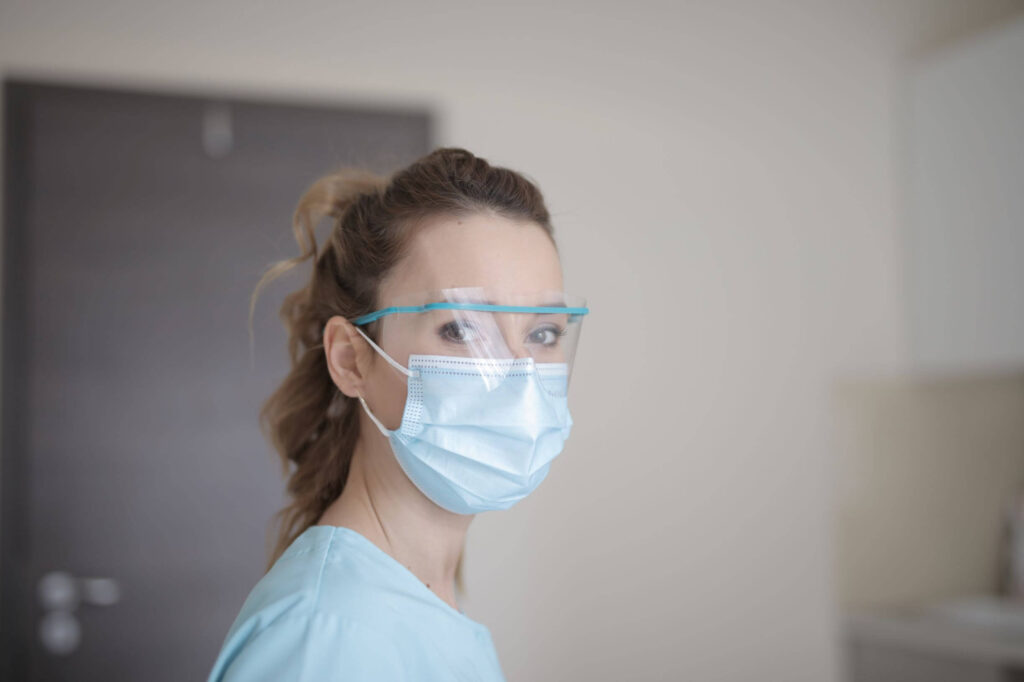The coronavirus outbreak is stressful. A recent Kaiser Family Foundation poll found that 45% of adults “feel that worry and stress related to coronavirus has had a negative impact on their mental health, up from 32% in early March.” When you are an essential worker, that stress is compounded by the need to continue working through the pandemic. As an essential worker susceptible to that stress and anxiety, you need to know how to prioritize your mental health during COVID-19.
Mental Health Month
In the midst of coronavirus anxiety and stressful situations for so many essential workers, May is appropriately Mental Health Month. As a professional who may be working on the front lines of healthcare, you may find it challenging to focus on your own health, including your physical and mental health, throughout the COVID-19 pandemic. However, the consequences of not doing so can be dire.
On the Front Lines
Dr. Lorna Breen, an emergency room physician in New York, was overly exhausted and stressed from treating COVID-19 patients. She contracted the virus herself but returned to her ER duties after recovering. The situation was overwhelming for her, though, and she recently died by suicide.
Dr. Tsion Firew, also an emergency medicine doctor based in New York, wrote that her friend “Lorna’s untimely death is painful evidence of the hidden battle that so many doctors, nurses and frontline workers are fighting right now. A battle that words of praise, welcome though they may be, simply cannot overcome.” Dr. Firew adds that “We are facing death at such an accelerated rate that the word unprecedented isn’t adequate, isn’t enough. It is like nothing any of us could have prepared for.”
Take Care of Yourself
The World Health Organization (WHO) and the American Medical Association (AMA) urge healthcare workers to take steps to prioritize your mental health during COVID-19. WHO states that you should try to use helpful coping strategies such as ensuring sufficient rest and respite during work or between shifts, eating sufficient and healthy food, engaging in physical activity, and staying in contact with family and friends. Avoid using unhelpful coping strategies such as use of tobacco, alcohol or other drugs. In the long term, these can worsen your mental and physical well-being.
The AMA emphasizes that you should monitor yourself for symptoms of depression and stress disorder such as prolonged sadness, difficulty sleeping, intrusive memories and/or feelings of hopelessness. Talk to a trusted colleague or supervisor. Be open to seeking professional help if symptoms persist or worsen over time.
Allow Yourself to Feel Your Feelings
The AMA reminds you that you should feel free to feel your feelings. Stress and anxiety are understandable emotions for essential workers during COVID-19. Professionals like you and your colleagues are likely to feel immense pressure given the potential surge in care demands, risk of infection, and equipment shortages, among other stressors. Experiencing stress and the feelings associated with it are by no means a sign of weakness or a reflection on your ability to do your job. The WHO adds that managing your mental health and psychosocial well-being during this time is as important as managing your physical health.
Take Breaks
When you are immersed in COVID-19 news and experiences, you can be easily and quickly overwhelmed. If at all possible during your work day, take some time for yourself. Take breaks from the news and from social media as well. You might have to access your computer or phone to get the facts and the latest updates, but then step away from everything related to the coronavirus, even if just for a few minutes, and breathe.
As the WHO explains, the COVID-19 outbreak is a unique and unprecedented scenario for many workers, particularly if you have not been involved in similar situations in the past. Even so, using strategies that have worked for you in the past to manage times of stress can benefit you now. You are the person most likely to know how you can de-stress and you should not be hesitant in keeping yourself psychologically well. Responding to the pandemic is not a sprint; it’s a marathon.
Essential Workers are Heroes
Dr. Firew stresses that “Medical professionals are indeed heroes, but we are also human. Many of us are suffering beyond anything we are able to articulate and the weight of this moment is heavy upon our shoulders.” Take the time now to prioritize your mental health during COVID-19, for your own safety and well-being and for the health and safety of those who depend on you.
The AMA urges you to be fortified by remembering the importance and meaning of your work. Remind yourself that despite the current challenges and frustrations, yours is a noble calling – taking care of those in need in a time of great uncertainty. Make sure to take time to recognize the efforts and sacrifices made by your colleagues. Together, we are all stronger.
Providence Supports Professional Essential Workers During COVID-19
At Providence Treatment, we understand the challenges you are facing. To help you during COVID-19, we offer telehealth to support you while keeping everyone safe and healthy. We use a telehealth technology that enables us to remain HIPAA-compliant and ensures your confidentiality is maintained. We want you to be able to prioritize your mental health during COVID-19. You can overcome addiction with outpatient treatments at Providence Treatment. If you need help, contact us at 484.469.9592.









